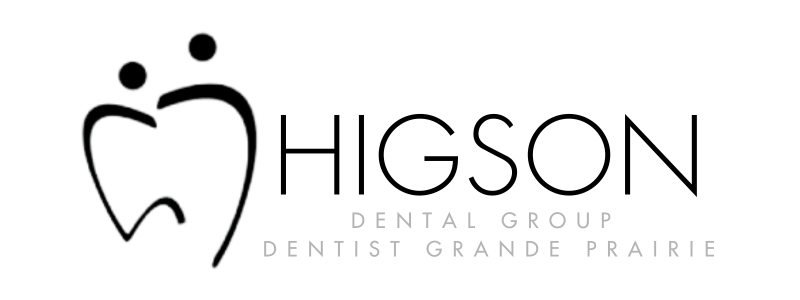Dental restorations are essential to maintaining the function and appearance of your teeth. From minor repairs to full-tooth replacements, each type of dental restoration offers unique benefits. Understanding the options available and what to expect from each treatment can empower you to make informed decisions about your oral health. Here’s an in-depth look at each restoration, enhanced with insights from years of experience.
Fillings: A Simple Solution for Cavities
Fillings are one of the most common dental restorations we perform to repair teeth affected by decay or minor damage.
What Are Fillings?
Fillings restore the structure of a tooth after decay has been removed. We use materials like composite resin for a natural look, or amalgam for strength and durability.
- Composite fillings are ideal for visible teeth, since they blend seamlessly with your natural tooth color.
- Amalgam fillings are more durable and typically used for molars.
Process and Care for Your Fillings
Fillings are like the “filler” of our daily practice and a foundational part of what we do. The procedure involves numbing the tooth, removing decay, and filling the cavity with the chosen material. The result is a smooth, functional tooth. To ensure the longevity of your filling, proper care includes regular brushing, flossing, and checkups.
Cost of Fillings
The cost of fillings typically ranges from $100 to $400 per tooth, depending on the material used.
Crowns: Protecting and Strengthening Damaged Teeth
Crowns, or caps, are used to cover and protect a tooth that has been significantly damaged or weakened.
What Are Crowns?
Crowns are necessary when a tooth can’t be restored with a filling alone. They’re made from porcelain, ceramic, or metal, with porcelain and ceramic options often chosen for their natural appearance.
At Higson Dental, we use lab-made crowns instead of same-day crowns to ensure the highest quality. Lab-made crowns are crafted by experienced technicians using precision milling machines, resulting in a better fit and appearance.
Process and Considerations
- First Appointment: We prepare the tooth, take a digital scan, and send it to a lab. You’ll receive a temporary crown while the permanent one is being made.
- Second Appointment: The permanent crown is bonded in place, ensuring a perfect fit and color match.
Lab-made crowns, which may require a second visit, offer superior quality and durability compared to same-day options.
Cost of Crowns
The cost for lab-made crowns ranges from $1,000 to $1,500 per tooth.
Bridges: Replacing Missing Teeth
Bridges are a dental solution designed to fill the gap created by one or more missing teeth. They are anchored to the adjacent teeth (abutment teeth), helping restore both appearance and function.
2 Types of Bridges
- Traditional or Cantilever Bridges: Anchored by crowns on the abutment teeth.
- Maryland Bridges: Supported by a metal or porcelain framework bonded to the back of the adjacent teeth.
Process and Importance of Bridges
The abutment teeth are prepared by reshaping to accommodate crowns. The custom-made bridge is then crafted in a dental lab and securely bonded in place. Bridges help prevent surrounding teeth from shifting, which can cause bite problems. By replacing missing teeth, they restore proper function and maintain dental alignment.
Cost of Bridges
- Traditional/Cantilever Bridges: $2,000 – $5,000 for one pontic and crowns for each abutment tooth.
- Maryland Bridges: $1,500 – $2,500 for one pontic with a bonded framework.
Dental Implants: A Permanent Tooth Replacement Solution
Dental implants are a long-lasting solution for replacing missing teeth and are highly valued for their natural look and durability.
What Are Dental Implants?
Dental implants involve placing a titanium post into the jawbone, which acts as an artificial root. Over time, typically several months, the bone fuses with the implant, creating a solid foundation for a crown, bridge, or denture.
While immediate implants were once common, we found that allowing 3–6 months, after extraction, for the bone to heal yields better outcomes. By being patient and cautious, we’ve significantly reduced our implant failure rate.
The Process and Patience
- Initial Consultation: We assess your jawbone and overall health using advanced imaging like CBCT scans.
- Placement: The implant is surgically inserted, and osseointegration (bone fusion) takes 3–6 months.
- Crown Attachment: Once integrated, we place a custom crown on the implant for a natural look and feel.
Cost of Dental Implants
- Single-tooth implants range from $1,250 to $3,000 per tooth.
- All-on-4 implants for a full arch of teeth typically cost between $20,000 and $30,000.
Dental implants in Grande Prairie, offer a durable, permanent solution, enhancing both functionality and aesthetics.
Inlays & Onlays: A Middle Ground Between Fillings and Crowns
Inlays and onlays are used when a tooth has moderate decay or damage that isn’t severe enough to require a full crown.
What Are Inlays & Onlays?
- Inlays: Fit inside the tooth cusps and restore the chewing surface.
- Onlays: Cover one or more cusps and extend over the biting surface.
Both restorations are custom-crafted in a lab, helping to preserve more of the natural tooth structure while providing strong, durable results.
Process and Benefits
Inlays and onlays are bonded to the tooth, offering both structural support and an aesthetically pleasing outcome. They are more durable than traditional fillings and can last many years with proper care. Our preferred approach involves high-quality lab-made restorations, ensuring precise fit and long-term durability.
Cost of Inlays & Onlays
The cost typically of inlays and onlays ranges from $650 to $1,200 per tooth.
Dentures: A Removable Option for Replacing Multiple Teeth
Dentures are a cost-effective way to replace several or all missing teeth and come in complete or partial options. They come in two main types: complete and partial dentures.
2 Types of Dentures
- Complete Dentures: Replace all teeth in the upper or lower arch.
- Partial Dentures: Fill in gaps where some natural teeth remain and are held in place with clasps.
Process and Care for Dentures
Dentures require several appointments for fittings and adjustments. Dentures are commonly chosen when multiple teeth are missing and patients want a more affordable option compared to implants. If you’re looking for dentures in Grand Prairie, this can be a convenient option to restore your smile and improve oral function.
Proper care and adjustments are needed to maintain comfort and functionality.
Cost of Dentures
- Single Denture: $300 to $500.
- Complete Set (Upper and Lower): $600 to $2,000.
Veneers: Enhancing the Aesthetics of Your Smile
Veneers are thin, custom-made shells that cover the front surface of teeth to improve appearance.
What Are Veneers?
Veneers are used to correct discoloration, chips, gaps, and misaligned teeth. Porcelain veneers are highly durable and offer a natural look, while composite veneers are a more budget-friendly option. Veneers are ideal for patients looking to make cosmetic improvements that significantly enhance their smile.
Process and Longevity
The procedure involves removing a small amount of enamel, taking impressions, and bonding the veneers to the teeth. Porcelain veneers generally last 10–15 years.
Cost of Veneers
The cost of veneers typically ranges from $500 to $1,500 per tooth.
Dental Bonding: A Quick and Cost-Effective Fix
Dental bonding is a simple, one-visit procedure that uses tooth-colored resin to repair small chips, cracks, or gaps.
What is Dental Bonding?
The resin is applied to the tooth, shaped, and hardened with a special light. It’s then polished to match the surrounding teeth.
Bonding is great for minor cosmetic improvements and offers an affordable, quick fix.
Durability
Bonding lasts 3–10 years, depending on the location of the restoration and oral habits. It’s best suited for teeth that don’t experience heavy biting force.
Cost of Dental Bonding
The cost of dental bonding ranges from $100 to $400 per tooth, making it an accessible option for many patients.
Contact Us for Dental Restorations Near You
From basic fillings and crowns to advanced dental implants and cosmetic veneers, dental restorations offer a range of solutions for restoring function and aesthetics. Each treatment has specific benefits, processes, and costs, and our practice is committed to providing the highest quality care tailored to your needs. By understanding these options, you can feel confident in your choices and trust that we will deliver the best results for your smile. Contact our office to learn more about dental restorations near you.


